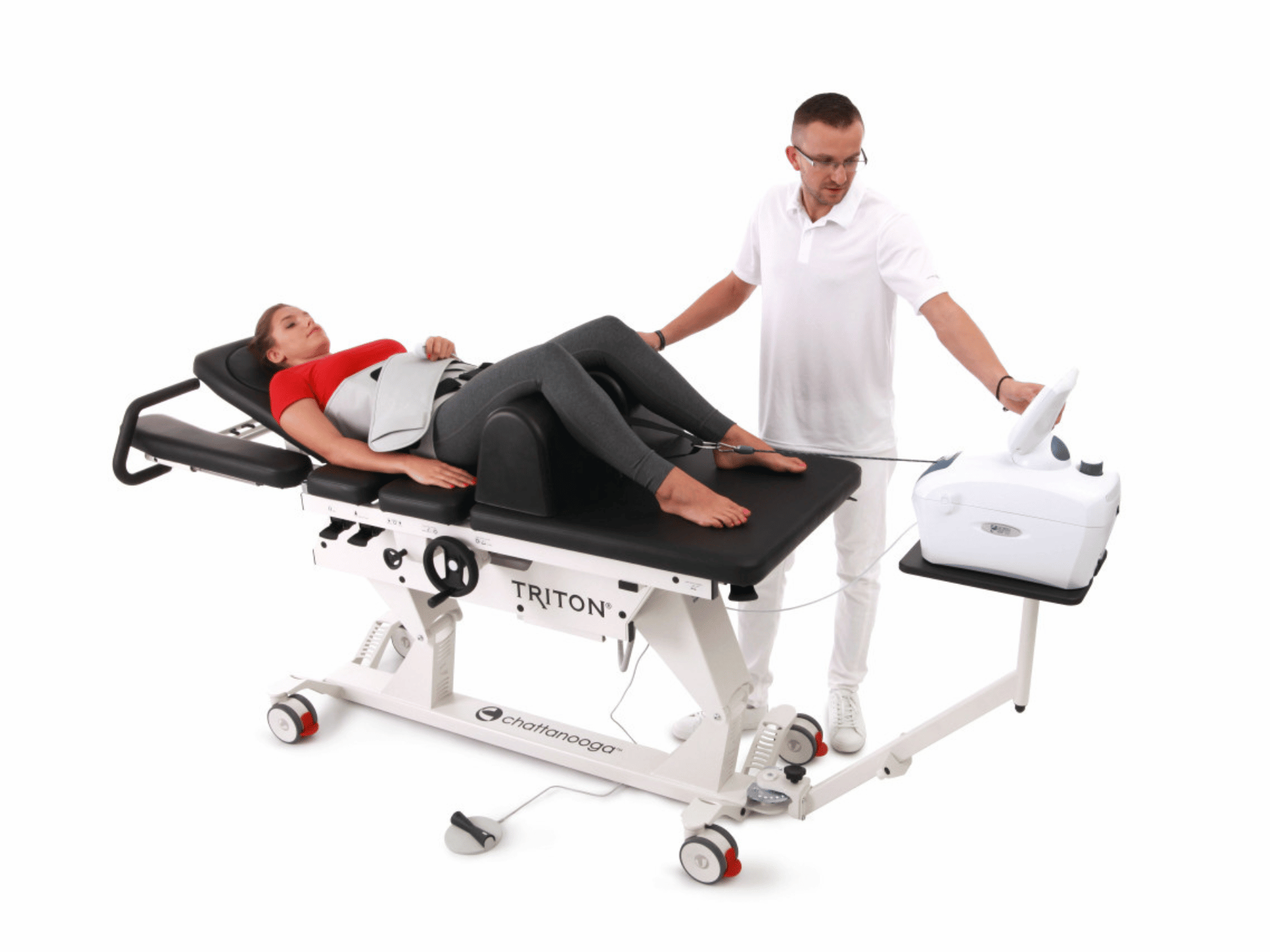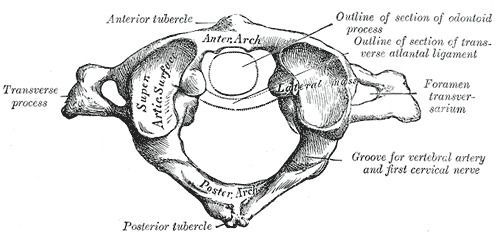Allergy Headaches: Causes, Triggers, Symptoms & Treatment
If you suffer from allergies, that bad headache
may be triggered by allergy symptoms. Some refer to it as an allergy headache, although it gets somewhat complicated from there.
Some patients report allergy headaches as a direct link to their allergies. What they’re referring to may be discomfort in the nasal passages due to allergy symptoms or a different type of headache altogether.
Sinus headaches and migraines can both be triggered by allergies or even a cervical spinal misalignment.
It’s essential to understand the root causes of your headache. An accurate diagnosis will determine your treatment plan and triggers to avoid and prevent future headaches.
What is an allergy headache?
An allergy headache refers to the symptoms associated with your allergies more than an actual type of headache. Allergic rhinitis, or hay fever, is a common inflammation of the inside of your nose caused by allergens. That inflammation can present as pain that feels like a headache.
What does an allergy headache feel like?
An allergy headache can feel like sinus pressure and facial pain throughout the nose, forehead, and cheekbones.
It can present with symptoms that resemble the common cold: sneezing, runny nose, itchy eyes/watery eyes, nasal congestion, and nasal buildup.
What you’re referring to as an allergy headache may be a different kind of headache, as well.
Your headache may be caused by a sinus infection, migraines, ice pick headaches
, or other underlying conditions or triggers. If you’re waking up with headaches
, for example, that could be a sign of an undiagnosed sleep disorder.
Headaches could also be triggered by other factors outside of allergies, even among those who have allergies. Those include:
- Cold or flu symptoms
- Stress
- Alcohol
- Hormonal changes
- Teeth grinding at night
- Changes in diet
- Lack of sleep/Change in sleep patterns
Allergy Headache Symptoms
Allergy headache symptoms present like other common headache symptoms, which further emphasizes a whole-body approach to treating the cause of your discomfort.
What are the symptoms of an allergy headache?
The symptoms of an allergy headache include pain in your sinuses and moderate to severe facial pain.
If your allergy headache is caused by a migraine, which is a common occurrence , migraine symptoms can also include:
- Throbbing, pulsing pain on one or both sides of the head
- Sensitivity to light, smell, and sound
- Nausea and vomiting
- Dizziness
- Head pain that worsens with movement
According to the American Migraine Foundation, a migraine can even present with allergy- and cold-like symptoms. It isn’t uncommon for a migraine to come with a stuffy nose and watery eyes, two hallmark symptoms among allergy sufferers.
Additional symptoms, or prodrome symptoms
, may occur in the days leading up to a migraine. Depending on the type of migraine
, you may also experience visual symptoms or auras.
Symptoms for true sinus headaches, or rhinosinusitis, include:
- Weaker smell/lack of smell
- Facial pain/pressure
- Fever
Again, sinus headaches are rare. More likely than not, there are other triggers and root causes behind that allergy headache.
Common Triggers of Allergy Headaches
Allergy headache triggers coincide with your allergy triggers. Those include:
- Seasonal allergies
- Pollen
- Pet dander
- Dust mites
- Mold
- Stress
- Certain foods
Some allergy sufferers experience worse symptoms in the springtime. Changes in weather and barometric pressure are both migraine triggers , as well. The list of migraine triggers is much longer and can include everything from environmental factors to medications to dehydration.
Diagnosis
An accurate diagnosis is essential to successfully treating headaches related to allergies.
Your physician will want to know where the pain is located, whether that’s the top of your head
or focused on one side. They’ll ask about any additional pain or symptoms and whether you’ve tried anything for those symptoms.
If you’re sure what you’re dealing with is an allergy headache, your physician or allergist can run a series of allergy tests to identify specific triggers.
What you’re feeling in your sinuses may not be sinusitis or a sinus headache, for example, but migraine pain. Again, sinus headaches are quite rare and often over-diagnosed
, even self-diagnosed by patients complaining of sinus pressure.
More often than that, that patient is actually experiencing a migraine, as allergies can be a trigger for chronic migraines, or sinus problems that present with a bad headache.
Causes of Allergy Headache
The causes of your allergy headache may depend on your allergies and the type of headache you’re experiencing. There are common causes of allergy headaches:
- Misalignment of the upper cervical spine: Sometimes migraine or sinus headaches are really misalignments in the spine that require adjustment for long term relief.
- Migraines: The headache you’re experiencing may be the result of allergens triggering an immune system response. This causes inflammation that presents as a migraine attack. If you’re a chronic migraine sufferer, it may not have anything to do with your allergies at all.
- Hay fever: Headaches caused by hay fever, or allergic rhinitis, aren’t a result of sinus headaches. It’s the inflammation in your nasal passages that is causing you that discomfort.
- Food allergies: Some foods can trigger a headache response not because of the allergy itself, but because of your own food sensitivities. There is some evidence that foods like dairy, chocolate, and eggs may cause migraines in some.
- Histamine: Histamines are your immune system’s response to allergy triggers. They can cause the worst of your allergy symptoms, and may even trigger migraines in those prone to chronic headaches. Antihistamines are a common treatment for allergy sufferers.
If you have a sinus headache or migraine, the list of causes is much longer. True sinus headaches are the result of a sinus infection.
How long does an allergy headache last?
An allergy headache can last as long as you’re exposed to the triggers for your headache and allergy symptoms.
It also depends on the real cause of your headache. A true sinus headache can last up to 2 weeks. Migraine attacks can last for hours and up to days at a time.
Prevention
Allergy headache prevention is focused on limiting your exposure to known allergens. That may mean spending more time inside during allergy season and leaving the yard work for those without seasonal allergies.
To prevent the worst allergy symptoms:
- Shut windows on days with high pollen counts
- Use a dehumidifier
- Use allergy-friendly bedding
- Wash your hands often, especially after you’ve been in contact with known allergens
- Vacuum and dust regularly
- Avoid strong-smelling fragrances, air fresheners, and deodorizers
- Consider bare floors if your living space is carpeted
Home Care & Natural Remedies
If you’ve been unable to avoid allergic headache triggers, there are accessible remedies out there to treat those symptoms.
How do you get rid of an allergy headache?
To get rid of an allergy headache, try over-the-counter antihistamines, decongestants, or nasal sprays. These remedies work to relieve sinus congestion and pressure.
Lots of water, steam baths, and warm washcloths applied to areas where you’re feeling the most pressure can also help relieve your symptoms if you’re seeking more natural remedies.
Allergy Headache Treatments
To treat an allergy headache, your plan of attack should start with treating the allergies if that’s the root cause of your pain.
If over-the-counter remedies don’t work or if symptoms are severe,
talk to an allergist about additional treatments. An allergist could also work with you on a treatment plan to prevent recurring symptoms.
Those treatments may include immunotherapy, or allergy shots. Allergy shots prevent allergic reactions in the first place, and reduce your sensitivity to allergens that may be causing your distress.
Your treatment options may also look different if you find that your headache isn’t due to allergies. In more severe cases, patients with a history of sinus infections who have not responded to treatments may be candidates for surgery.
If what you’re dealing with are chronic migraines, you may benefit from chiropractic care
that gets to the root of your issue: misalignments or spinal motion issues that are triggering your chronic headaches.
Many remedies treat the symptoms to get you through the day, but if you’re suffering from chronic headaches, it’s important to identify what’s causing you that pain.
Call your doctor if…
If you’re suffering from any type of headache that is affecting your quality of life, seek out additional medical advice from your primary care physician. They may recommend an allergist for allergy testing if what you’re experiencing is an allergy headache.
Keep in mind that if your pain doesn’t go away, your headaches may not be related to allergies. Over-the-counter decongestants won’t solve the problem if there are underlying causes for persistent headaches
.
At Denver Upper Cervical Chiropractic, we use gentle upper cervical spinal adjustments
to relieve different types of headaches. Our method of care can not only treat your chronic headaches, it can prevent those headaches from returning.
You don’t need to live with chronic pain. Set up an appointment with us today by clicking “request appointment” at the top of this page.
- Ku, M., Silverman, B., Prifti, N., Ying, W., Persaud, Y., & Schneider, A. (2006). Prevalence of migraine headaches in patients with allergic rhinitis. Annals of allergy, asthma & immunology : official publication of the American College of Allergy, Asthma, & Immunology, 97(2), 226–230. Abstract: https://pubmed.ncbi.nlm.nih.gov/16937756/
- Kimoto, K., Aiba, S., Takashima, R., Suzuki, K., Takekawa, H., Watanabe, Y., Tatsumoto, M., & Hirata, K. (2011). Influence of barometric pressure in patients with migraine headache. Internal medicine (Tokyo, Japan), 50(18), 1923–1928. Abstract: https://pubmed.ncbi.nlm.nih.gov/21921370/
- Maurya, A., Qureshi, S., Jadia, S., & Maurya, M. (2019). “Sinus Headache”: Diagnosis and Dilemma?? An Analytical and Prospective Study. Indian journal of otolaryngology and head and neck surgery : official publication of the Association of Otolaryngologists of India, 71(3), 367–370. Full text: https://www.ncbi.nlm.nih.gov/pmc/articles/PMC6737117/
- Jones N. S. (2009). Sinus headaches: avoiding over- and mis-diagnosis. Expert review of neurotherapeutics, 9(4), 439–444. Abstract: https://pubmed.ncbi.nlm.nih.gov/19344297/
- Geiselman J. F. (2019). The Clinical Use of IgG Food Sensitivity Testing with Migraine Headache Patients: a Literature Review. Current pain and headache reports , 23 (11), 79. Abstract: https://pubmed.ncbi.nlm.nih.gov/31456119/
- Alstadhaug K. B. (2014). Histamine in migraine and brain. Headache, 54(2), 246–259. Abstract: https://pubmed.ncbi.nlm.nih.gov/24433203/
The post Allergy Headaches: Causes, Triggers, Symptoms & Treatment appeared first on Denver Upper Cervical Chiropractic.
Visit us at Denver Upper Cervical Chiropractic
We serve patients in Denver, CO.
HOURS
Monday 1:00 pm – 6:00 pm
Tuesday 9:00 am – 6:00 pm
Wednesday 1:00 pm – 6:00 pm
Thursday 9:00 am – 6:00 pm
Friday Reserved for Traveling Patients
1778 S Broadway, Denver, CO 80210, United States of America
Phone:
(303)-955-8270



